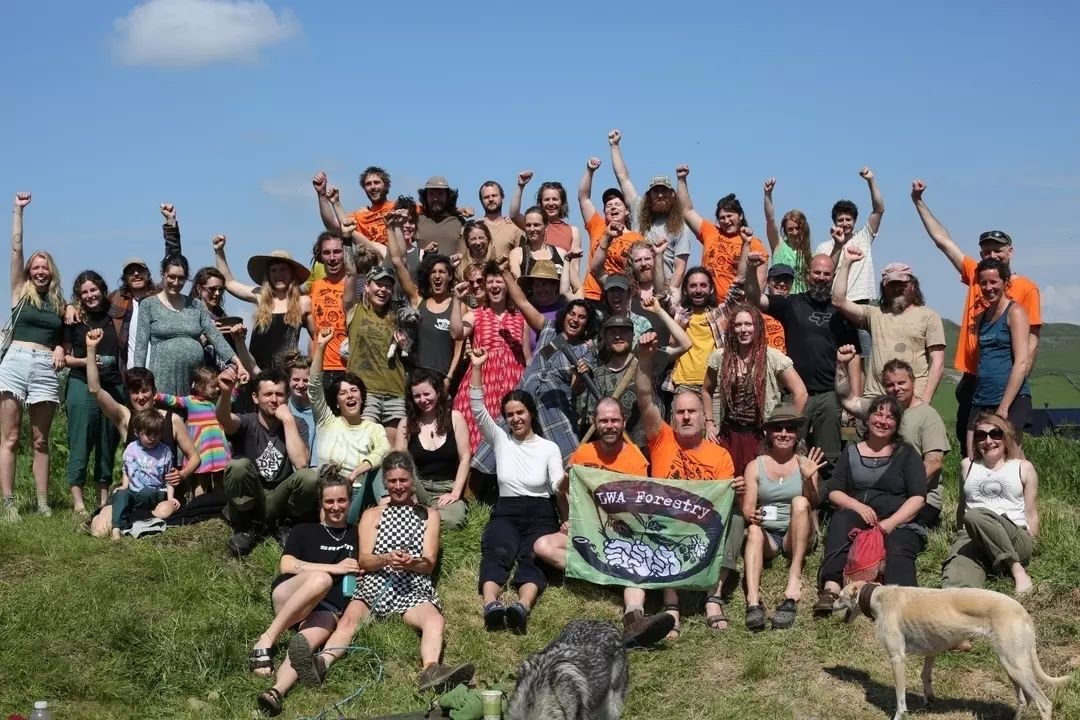UK: The Landworkers’ Alliance’s Top Five Demands for the New Government

The UK is due to hold a general election on 4 July 2024. As part of its efforts to put food and farming higher on the political agenda, the Landworkers’ Alliance has set out its top five demands for the next government. Emphasizing the urgent need for sustainable practices and increased support for farmers, the Alliance’s demands highlight critical issues impacting the sector.
Doubling the Agriculture Budget
At the forefront of their demands is a call to double the current agriculture budget. For the sake of climate, biodiversity, and the future of food systems, LWA has urgently called for more environmentally-friendly practices in farming and food production systems. They also note with concern that the UK government is failing to provide farmers with adequate financial support, advice, and reassurance to pioneer this transition.
“The UK government has a fundamental responsibility to secure Right to Food for citizens. This is enshrined in international human rights law and is the second of the Sustainable Development Goals. The need to transition to using more environmentally friendly farming methods is now beyond dispute, but new environmental policies are being implemented with little regard for farming livelihoods. Transitioning from high input chemically-intensive production to agroecological and organic farming cannot happen overnight – soils are too depleted, business models need adapting and farm management plans need changing,” the demand note released by the LWA read.
Capital Grants for Horticulture Start-Ups
Addressing the nation’s over-reliance on food imports, the Landworkers’ Alliance proposes a Capital Grants Scheme tailored for horticulture start-ups. The UK currently imports 45% of vegetables and 83% of fruit. The UK spends £2.7 billion per year on imported fruit and vegetables, much of which comes from water scarce countries like Spain and Morocco.
The LWA argues that small-scale market gardens provide so much in terms of benefits to community, physical and mental health, nature, rural regeneration and education, but access to sufficient capital to begin new enterprises presents a significant barrier for many wanting to enter the sector.
Purchasing and establishing infrastructure such as machinery, polytunnels, irrigation systems and packing sheds are a necessary prerequisite to setting up an efficient small-scale horticulture enterprise or market garden, but they present significant upfront costs for which many new entrants lack the finances.
Existing schemes, such as the Farm Equipment and Technology Fund only allow purchase of a very limited range of equipment and are focused on innovative technology, rather than the basic equipment and infrastructure needed by new entrants. Furthermore, the cost of equipment available through these schemes combined with the fact that only 40% grants are available, excludes those with limited investment capital.
Capital grants for horticulture start-ups would encourage the establishment of agroecological organic horticultural enterprises and market gardens, thereby enhancing food security and supporting local growers. It is one way in which the government could facilitate the market garden renaissance that the LWA is calling for.
New Entrants Support Scheme: Access to Land
Average age of a farmer in the UK is 59. Half of England is owned by less than 1% of the population. In a survey of over 150 new entrant landworkers wanting to establish or scale-up their agroecological farming enterprises, 61% cited access to land as a significant barrier.
Recognizing these barriers faced by new entrants in accessing agricultural land, the LWA calls for the development of a New Entrants Support Scheme. This scheme seeks to tackle inflated land prices and facilitate access to farming opportunities, crucial for fostering the next generation of farmers and ensuring future food production.
Green Economy Apprenticeship Scheme
Highlighting a lack of accredited training programs in agroecological farming, the LWA proposes a Green Economy Apprenticeship Scheme. This initiative aims to provide aspiring farmers with the necessary skills and support through apprenticeships with living wages, thereby promoting careers in sustainable agriculture.
Commitment to Procure 50% of Public Food Locally
In a bid to promote sustainable and locally sourced food, the LWA urges the government to commit to procuring 50% of public food from local organic producers. This measure not only supports public health by ensuring access to nutritious food but also creates stable markets for smaller-scale organic growers. LWA argues that in order to ensure that everyone has access to nutritious, fresh and sustainable produced food, public institutions like schools, hospitals, prisons and care homes should procure organic food that is produced locally. However, years of austerity and public spending cuts councils have led to their budgets stripped, forcing them to procure low-cost food. Central government therefore needs to step in and support local authorities to procure local organic food, through: Subsidies that bridge the gap between current costs of procuring cheap food and the cost of procuring nutritious, local, organic produce; Supporting local authorities to explore dynamic public procurement schemes which will allow smaller-scale local producers to access contract.
You can download the detailed presentation of these demands here.
Also Read: Landworkers Alliance’s Manifesto for Food, Farming & Forestry
